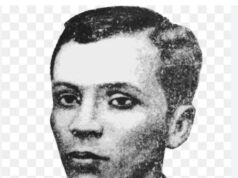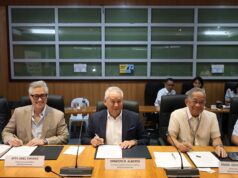Clark Development Corporation (CDC) would like to assure the public of its strict adherence and compliance to environmental laws in view of recent news items on two incidents of alleged illegal tree cutting inside the Freeport Zone.
To get to the bottom of these allegations, Vice President for Engineering Services (ESG) Miguel de la Rosa conducted an inquiry and these are the conclusions reached.
The first item involves 209 mango trees and other species located on the proposed connector road from McArthur Highway to New Clark City Airport Road. The said area, which is within the Clark Special Economic Zone, is being cleared for the construction of an access road which will be connected to the extension of the Clark-Mabalacat -Angeles Road (CMAR) and the Dolores portion of Macarthur Highway. This is a part of a road widening project of the Bases Conversion and Development Authority (BCDA) being implemented by CDC.
The Department of Environment and Natural Resources Regional Office issued a Tree Cutting Permit (TCP) No. 2022-92 last December 2022. The official release was made last March 28, 2023 after CDC completed the delivery of 20,900 bamboo and narra seedlings to DENR’s Clonal Nursery in Arayat, Pampanga as replacement for the 209 affected trees. Of the 209 trees, fifty-eight (58) were scheduled to be earth balled and transferred to a suitable replanting site inside the Clark Freeport Zone. This is in accordance with the requirement of the permit that “no tree cutting shall be undertaken without the presence of DENR and LGU representative or CDC.”
The tree-cutting activity was closely monitored and supervised by the technical staff of DENR-PENRO and CDC-Estate Preservation and Recovery Division (EPRD). A representative from DENR was also present during the cutting to ensure that the trees which were cut and to be earth balled were the same as those specified in the permit.
ASIA Philippines Inc. was contracted by CDC for the operations and maintenance of the power lines from Concepcion, Tarlac to Clark Freeport Zone. The contract includes the removal of power line obstructions, including trees that are under power lines.
Although they claim exemption from securing a cutting permit from the DENR by citing RA 11361 or the Anti-Obstruction of Power Lines Act, a fine of P100,000 was imposed on them for violation of the Terms of Reference in their contract, which require them to coordinate and inform CDC-EPD prior to cutting any tree within the Freeport Zone.
Aside from performing its mandate to implement all national laws pertaining to the environment, CDC has also initiated various projects to ensure that the green character of the Freeport Zone is preserved and protected. These projects include:
1. Urban Forestry Program (2019-2026) where pockets of open or green spaces were converted to mini-forests by planting various forest trees endemic to the place, including Kamagong, Balacat, Dao, Molave, Ipil, Caballero and other hardwood species.
2. The Tree Care Program started in 1996 and has so far planted more than 20,000 trees of various species. This activity includes regular pruning, trimming and tree surgery Centuries old acacia trees around the freeport were also geo-tagged and QR-code markers and lightning arresters were installed to protect them against cutting and natural causes.
3. CDC Hybrid ECO Park is now in the process of building a model Eco Park equipped with various green-initiated blueprints such as rain-water harvesting facility, solar roofs, composting facility, botanical garden, nursery and arboretum.
CDC is committed to transparency and accountability as development projects are implemented. The public is assured that in the course of pursuing projects and usher in progress, it will continue to adhere to laws that guarantee protection of the environment and the local communities.





